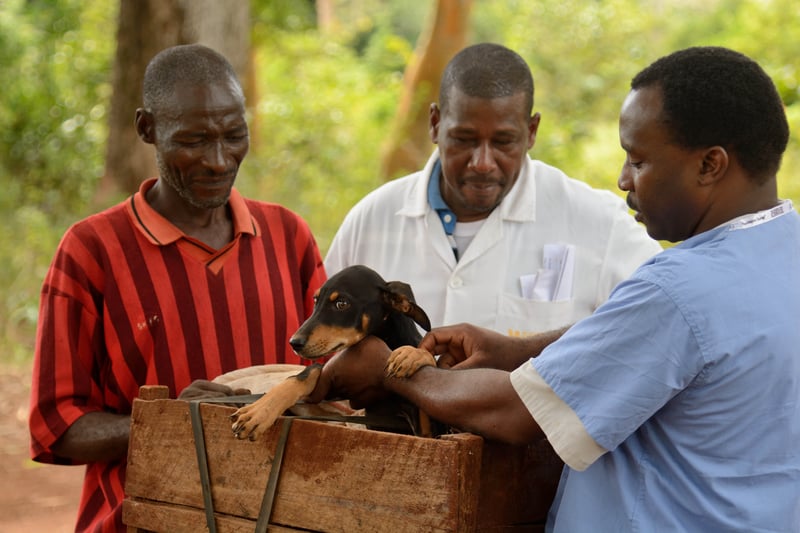
Protecting dogs and people in Kenya: launch of national plan to eliminate rabies
News
Kenya has become the first country in Africa to launch a national strategy for controlling and eliminating rabies.
Late last month, on World Rabies Day, we supported the vaccination of more than 3,000 dogs in Makueni County and helped launch a national strategy to eliminate human rabies from Kenya.
The strategy is simple: vaccinate at least 70% of the dog population each year – for at least three years – and the disease will be eliminated, in dogs, humans and wildlife.
The new plan was launched by Kenyan government principle secretaries, from the Ministry of Health and Ministry of Agriculture, Livestock and Fisheries. We attended the launch in Makueni County, Kenya.
Makueni County is one of five pilot counties that will be targeted first by the Kenyan government. Our teams are working closely with government officials there to advise on the humane treatment of animals with the disease.
On World Rabies Day, we supported the mass vaccination of 3,000 dogs across Makueni County. Alongside education on dog handling and care, there was also a competition for the dog in the best condition of health.
The principal secretary for Livestock, Fred Segor, said: “With the help of partners such as World Animal Protection and Centres for Disease Control and Prevention (CDC), we hope that by the year 2030, we will have a rabies free nation.”
Battling rabies in Kenya: what else should you know
- Rabies has been endemic in Kenya since the first reported case in 1912
- In 2012 the government of Kenya set up a Zoonotic Disease Unit (ZDU) to improve the surveillance, prevention and control of zoonotic diseases in the country. Rabies was identified as one of the highest priority diseases.
- In April 2013 we attended a workshop run by the ZDU, with government representatives, universities and other organisations including the UN Food and Agriculture Organisation (FAO) and World Health Organisation (WHO) amongst others. Together, the workshop produced Rabies Management Guidelines and the Rabies Elimination Strategy that was launched last month.
Read more about controlling rabies in our resource: Controlling Rabies: One humane solution, three reasons why.
Image: A man brings his dogs to be vaccinated against rabies in Zanzibar, Tanzania (Andrew Morgan)
“With the help of partners such as World Animal Protection, we hope that by the year 2030, we will have a rabies free nation.